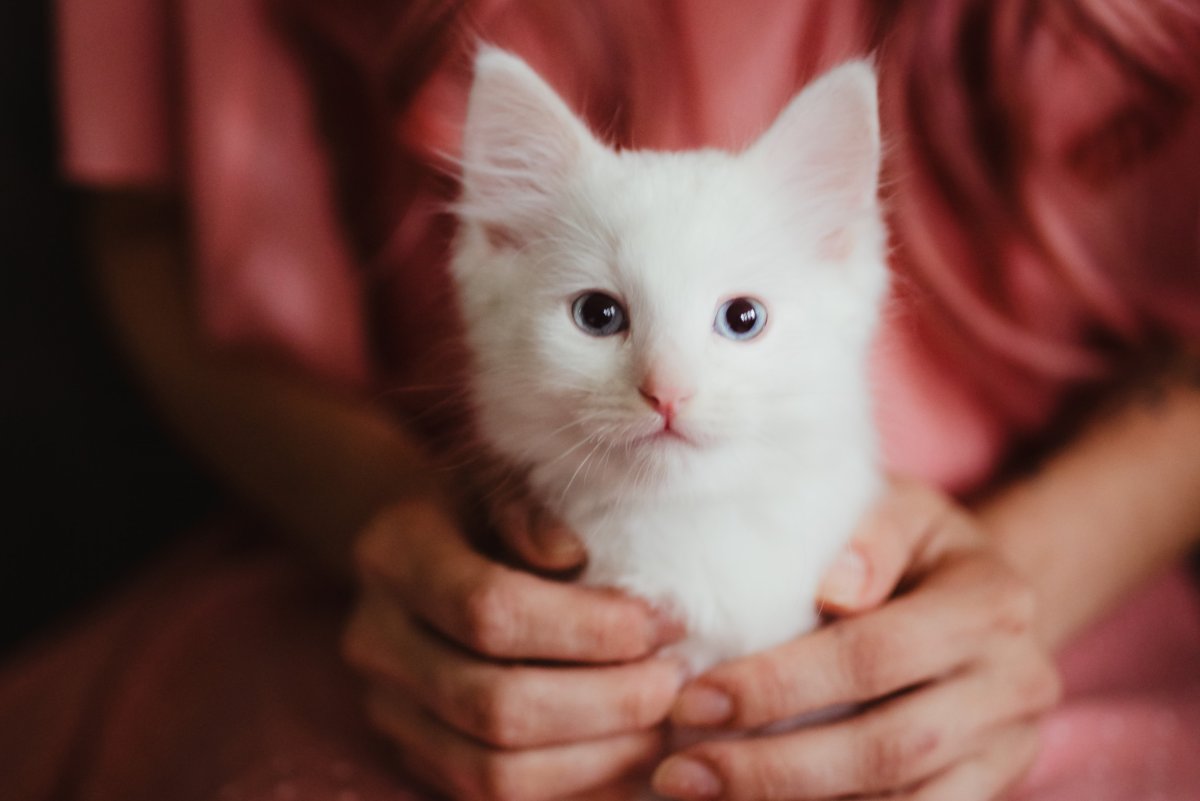When photographer Courtney Udvar-Hazy's wolf-dog hybrid tragically died after being struck by a car in 2018, she decided she needed to clone her.
Udvar-Hazy's dog Willow had quite a following on Instagram when she unexpectedly died. But the account, @WanderwithWillow, is still very much active, except now Udvar-Hazy posts pictures of her pup Phoenix.
Phoenix, a two-year-old wolf-dog hybrid, is Willow's clone.
Udvar-Hazy contacted the same company that famously cloned Barbra Streisand's dog Samantha in 2018, ViaGen Pets. The Texas-based company launched in 2016 and utilizes the original pet's cells to create an embryo which is then transferred to a surrogate mother.
Udvar-Hazy ended up with Phoenix as well as an additional five identical puppies that she gifted to her friends, Input Magazine reported.
Currently, ViaGen Pets is able to clone dogs for $50,000, cats for $35,000, and horses for $85,000. But according to Melain Rodriguez, the Client Service Manager at ViaGen Pets, although the clone might have the exact same DNA profile as the original pet, it will still develop its own temperament and personality.
"It is not a reincarnation," Rodriguez told Newsweek. "It is the essence of that original animal and I think that's what our clients are looking to get out of cloning. I don't think the majority of them are looking to replace that animal, they're looking to get a part of that animal back."
According to the website, the cloning process is fairly expensive due to "state of the art housing," nutritious diets, and "expert" veterinary care that the cloned puppies and kittens are provided. Rodriguez said the puppies and kittens are kept for nine weeks until they are ready to go to their home. She also added that people are also able to adopt the surrogate mother if they are interested.
While the idea behind cloning a deceased pet sounds like something out of a sci-fi novel, the technology isn't actually all that new. The first-ever cloned dog, Snuppy, was born in 2005. Using stem cells from Snuppy, scientists were able to reclone him and create four more dogs in 2017. While one dog died, the other three are all healthy.
While many people still share a concern that cloning animals could affect their health, ViaGen Pets claims that cloned animals are no more susceptible to health issues than noncloned animals.
With more and more people opening up about cloning their beloved pets, ViaGen Pets hopes that the process will become more accessible and normalized in society. According to Rodriguez, ViaGen Pets has cloned almost 1,000 pets.
For many, cloning a pet serves as a coping mechanism to deal with their grief. But the cloning process is by no means a quick fix.
Kelly Anderson, who runs the Instagram account @adogandacat, said it took about four years for ViaGen Pets to clone her Ragdoll named Chai after she unexpectedly died while in the care of a pet sitter.

Before Chai's death, Anderson had accumulated more than 64,000 followers and now she wasn't sure how to keep the page active.
Anderson explained to Newsweek that she was up all night the day Chai died and remembered a recent conversation she had with a friend about ViaGen Pets and their cloning process. She recalled calling them as soon as they opened the next day.
Since her cat had already been frozen at the vet and the cloning process required live skin tissue, they told Anderson they could make no promises that the procedure would be successful because of the frozen tissue.
"They recommend that you do it while the cat or dog or horse is still alive because it's a noninvasive kind of procedure," she told Newsweek. "I have preached that to everyone since going through this process. Preserve cells now, the worst that happens is you're out like $1,000 or so and don't have any regret in case something unexpected does happen."
But luckily for Anderson, the team at ViaGen Pets was able to gather enough cells to clone Chai. Now, Anderson said she has Belle who looks identical to Chai and is working to build her Instagram account back up with Belle.
Newsweek reached out to Courtney Udvar-Hazy.
Update 1/19/22, 5:18 p.m. ET: This story was updated with a statement from Melain Rodriguez.
Uncommon Knowledge
Newsweek is committed to challenging conventional wisdom and finding connections in the search for common ground.
Newsweek is committed to challenging conventional wisdom and finding connections in the search for common ground.
About the writer
Samantha Berlin is a Newsweek reporter based in New York. Her focus is reporting on trends and human-interest stories. Samantha ... Read more
To read how Newsweek uses AI as a newsroom tool, Click here.








